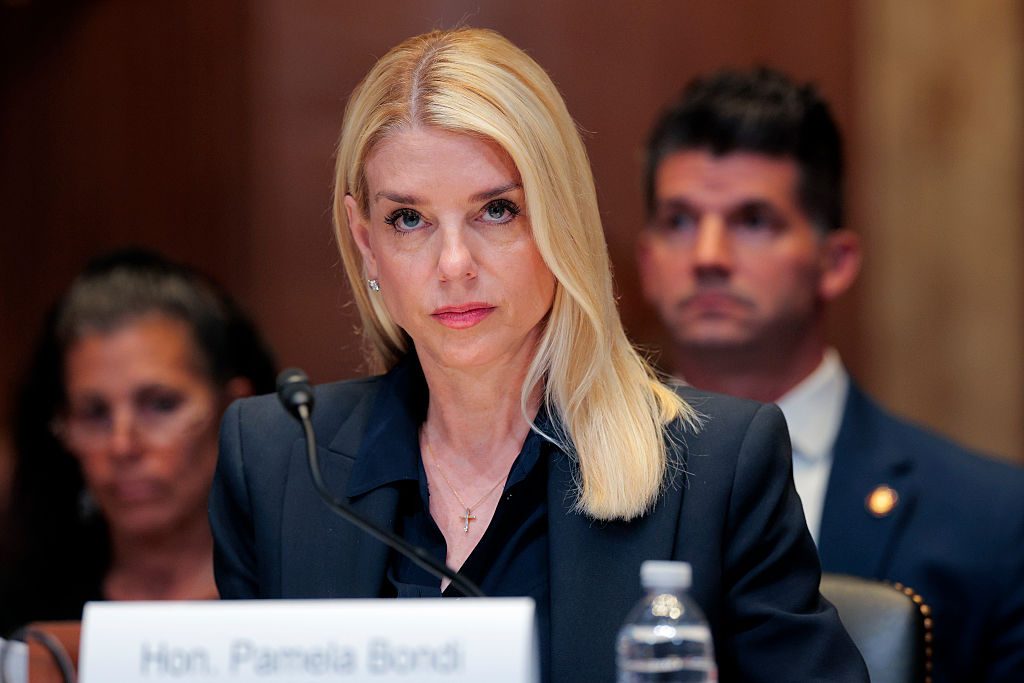The assassination of Charlie Kirk last week was an assault on free speech at a time when global support for this fundamental right is declining, especially among young Americans.
Kirk’s murder could have been an opportunity for the administration to reaffirm America’s unique free speech tradition, which was a prominent part of Trump’s campaign. Instead, his administration has seized the moment to launch a frontal assault on the First Amendment. Hours after the shooting, Trump identified the “radical Left” as the cause of the attack, pledging that his administration would hunt down “every one of those who contributed to this atrocity and to other political violence, including the organizations that fund it and support it”. Then, on Monday, Vice President JD Vance vowed to “go after the NGO network that foments, facilitates, and engages in violence”.
The rhetoric escalated further with Attorney General Pam Bondi, who told a podcast audience this week: “There’s free speech and then there’s hate speech, and there is no place — especially now, after what happened to Charlie — for hate speech in our society. We will absolutely target you if you are directing hate speech at anyone.”
But one of the defining features of the First Amendment is that — unlike international human rights law or most Western democracies — it does not recognise “hate speech” as an exception. In the landmark 1969 decision Brandenburg v Ohio, the Supreme Court held that only speech intended and likely to incite “imminent lawless action” falls outside constitutional protection. Celebrating the murder of a public figure, however grotesque, does not come close to meeting that test. Perhaps realising her mistake, Bondi later attemped to walk back her comments on X: “Hate speech that crosses the line into threats of violence is NOT protected by the First Amendment. It’s a crime.”
Bondi is correct that “true threats” are not protected. But that is not the same as “hate speech”. Nor do abstract celebrations of violence meet the standard for true threats, which requires “a serious expression of an intent to commit an act of unlawful violence to a particular individual or group”.
The Trump administration now sounds eerily similar to the European governments it has long attacked for undermining free expression. In his Munich speech earlier this year, Vance ridiculed the EU for threatening to shut down social media during moments of unrest if officials detected “hateful content”. He singled out Sweden for convicting a Christian Iraqi refugee who burned a copy of the Quran under its incitement laws.
Yet it is difficult to distinguish Bondi’s rhetoric from that of EU Justice Commissioner Michael McGrath, who recently declared: “The European Union has enshrined freedom of expression as a fundamental right. But this freedom is not absolute. When speech incites hatred or violence, it crosses a line that no democracy should ignore.” It is precisely this kind of reasoning that has led Europe down the path of prosecuting citizens for offensive social media posts and arresting demonstrators for “glorification of terrorism”.
None of this diminishes the fact that political violence is a growing danger in America. Kirk’s murder was a tragic illustration of a free speech culture unravelling: individuals turning to barbarity rather than debate. Yet the administration’s promise to “crack down” on Left-wing hate speech will neither make America safer nor strengthen conservative speech rights. Instead, it risks weaponising the DOJ to silence speech Republicans dislike while excusing speech Democrats find offensive — an approach bound to boomerang when the opposition takes power.
In the unlikely event that Bondi persuades the Supreme Court to retreat from its speech-protective case law, the Trump administration will have ensured that Charlie Kirk’s legacy is not the defence of free expression, but the demolition of the strongest speech protections the world has ever known.










Join the discussion
Join like minded readers that support our journalism by becoming a paid subscriber
To join the discussion in the comments, become a paid subscriber.
Join like minded readers that support our journalism, read unlimited articles and enjoy other subscriber-only benefits.
Subscribe